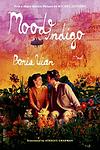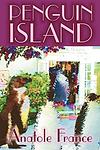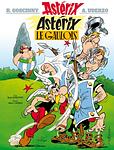The Greatest Russian, Brazilian, French "Satire, Fiction" Books Since 1900
Click to learn how this list is calculated.
This list represents a comprehensive and trusted collection of the greatest books. Developed through a specialized algorithm, it brings together 305 'best of' book lists to form a definitive guide to the world's most acclaimed books. For those interested in how these books are chosen, additional details can be found on the rankings page.
Genres
Satire is a genre of literature that uses humor, irony, and exaggeration to criticize and ridicule human vices, follies, and shortcomings. It is a form of social commentary that aims to expose the flaws and absurdities of society, politics, and culture. Satirical books often employ sarcasm, wit, and parody to challenge the status quo and provoke thought and reflection in readers. Satire can be both entertaining and thought-provoking, and it has been used throughout history as a powerful tool for social and political critique.
Countries
Date Range
Reading Statistics
Click the button below to see how many of these books you've read!
Download
If you're interested in downloading this list as a CSV file for use in a spreadsheet application, you can easily do so by clicking the button below. Please note that to ensure a manageable file size and faster download, the CSV will include details for only the first 500 books.
Download-
1. The Master and Margarita by Mikhail Bulgakov
This novel is a complex narrative that weaves together three distinct yet intertwined stories. The first story is set in 1930s Moscow and follows the devil and his entourage as they wreak havoc on the city's literary elite. The second story is a historical narrative about Pontius Pilate and his role in the crucifixion of Jesus Christ. The third story is a love story between the titular Master, a writer who has been driven to madness by the criticism of his work, and his devoted lover, Margarita. The novel is a satirical critique of Soviet society, particularly the literary establishment, and its treatment of artists. It also explores themes of love, sacrifice, and the nature of good and evil.
The 41st Greatest Book of All Time -
2. Journey to the End of The Night by Louis-Ferdinand Céline
The novel is a semi-autobiographical work that explores the harsh realities of life through the cynical and disillusioned eyes of the protagonist. The narrative follows his experiences from the trenches of World War I, through the African jungles, to the streets of America and the slums of Paris, showcasing the horrors of war, colonialism, and the dark side of human nature. The protagonist's journey is marked by his struggle with despair, loneliness, and the absurdity of existence, offering a bleak yet profound commentary on the human condition.
The 124th Greatest Book of All Time -
3. We by Yevgeny Zamyatin
In this dystopian novel, the story is set in the future, where the protagonist, a mathematician, lives in a highly regulated society where citizens are known by numbers, not names, and every action is dictated by the state. Individuality and freedom are suppressed, and even the concept of love is replaced by regulated sexual liaisons. The mathematician begins to question the infallibility of the state after meeting a rebellious woman, leading to a series of events that challenge the very foundations of his world.
The 456th Greatest Book of All Time -
4. Zazie in the Metro by Raymond Queneau
A young, precocious girl named Zazie comes to Paris to stay with her flamboyant uncle, a professional female impersonator. She is obsessed with riding the Metro, but a strike thwarts her plans. As she explores the city on her own, she encounters a variety of eccentric characters, gets into mischief, and ultimately causes chaos in the city. The novel is a humorous and satirical look at Parisian life, filled with word play and surreal elements.
The 734th Greatest Book of All Time -
5. The Elementary Particles by Michel Houellebecq
"The Elementary Particles" is a provocative novel that explores the lives of two half-brothers, one a molecular biologist and the other a disenchanted teacher, against the backdrop of late 20th-century France. The narrative delves into their personal struggles and emotional turmoil, resulting from their dysfunctional upbringing by a self-absorbed, hedonistic mother. Throughout the novel, the author uses their stories to critique contemporary society, touching on themes such as sexual liberation, consumerism, and the decline of traditional values. The book also delves into the implications of scientific advancements, particularly in the field of molecular biology.
The 907th Greatest Book of All Time -
6. Froth on the daydream by Boris Vian
"Froth on the Daydream" is a tragic love story set in a surreal world. The protagonist is a wealthy young man who marries a woman he loves deeply. However, their bliss is short-lived when she develops a strange illness - a water lily growing in her lung. As her health deteriorates, so does their wealth and social standing, leading to a bleak and heartbreaking end. This novel is a poignant exploration of love, loss, and the harsh realities of life, all set within a fantastical and dreamlike landscape.
The 934th Greatest Book of All Time -
7. Petersburg by Andrei Bely
"Petersburg" is a symbolist novel set in the heart of Russia during the 1905 Revolution. It follows the story of a young man who is given the task of assassinating his own father, a high-ranking government official, by a radical political group. The narrative is a complex mix of politics, family drama, and philosophical introspection, all set against the backdrop of a city in turmoil. The novel is renowned for its vivid and poetic descriptions of the city itself, making Petersburg as much a character in the story as the people who inhabit it.
The 1048th Greatest Book of All Time -
8. Death on Credit by Louis-Ferdinand Céline
"Death on Credit" is a semi-autobiographical novel that explores the life of a young Frenchman in Paris during the early 20th century. The protagonist, a medical student from a poor family, struggles with the harsh realities of life, including poverty, sickness, and death. The narrative is marked by its dark humor, cynicism, and scathing critique of society, reflecting the author's own experiences and views. The protagonist's journey is a constant struggle against the absurdity and despair of existence, depicted through a series of episodic adventures and misadventures.
The 1067th Greatest Book of All Time -
9. Moscow Petushki by Venedikt Yerofeev
The book is a surreal and satirical narrative that takes the reader on a tragicomic journey aboard a suburban train from Moscow to the small town of Petushki. The protagonist, a disillusioned intellectual and alcoholic, engages in philosophical musings and encounters a variety of eccentric characters, each embodying different aspects of Soviet life. As he delves into ruminations on love, suffering, and the search for meaning amidst the absurdities of existence, the journey becomes a metaphor for the human condition and the societal decay of the USSR, blending dark humor with poignant introspection.
The 1167th Greatest Book of All Time -
10. Pnin by Vladimir Nabokov
The novel is about a Russian émigré, Timofey Pnin, who is a professor at an American college. Pnin struggles with the complexities of life, language, and American culture, while dealing with the traumas of his past in Russia. The book is a series of loosely connected episodes, filled with humor, pathos, and Pnin's endearing confusion. His struggles and triumphs in academia and his search for a home and identity form the crux of the story.
The 1562nd Greatest Book of All Time -
11. Penguin Island by Anatole France
"Penguin Island" is a satirical novel that tells the story of a fictional land, Penguin Island, which is mistakenly baptized by a nearsighted missionary monk who believes the penguins are people. The novel then traces the history of this civilization, drawing parallels with French history and satirizing its politics, religion, and social mores. The narrative also incorporates elements of fantasy, such as penguins transforming into humans, and uses these elements to critique and lampoon human society and its institutions.
The 1649th Greatest Book of All Time -
12. Macunaíma by Mario de Andrade
This book is a hallmark of Brazilian literature, blending folklore, social critique, and surrealism to narrate the adventures of its eponymous hero, a shapeshifting character of indigenous origin who embarks on a journey from the Amazon rainforest to the city of São Paulo. Throughout his quest to retrieve a magical amulet stolen by a fearsome giant, the protagonist encounters a myriad of mythical creatures, gods, and figures from Brazilian folklore, all while satirizing the cultural and social issues of early 20th-century Brazil. The narrative is celebrated for its inventive language, playful use of Brazilian vernacular, and its pivotal role in the Brazilian Modernist movement, offering a unique exploration of national identity, racial diversity, and the complex relationship between tradition and modernity.
The 1841st Greatest Book of All Time -
13. Asterix the Gaul by Rene Goscinny
In this comic book, a small Gaulish village in ancient France resists Roman occupation with the help of a magic potion that gives them superhuman strength. The story revolves around the adventures of a brave and clever warrior and his lovable, hefty sidekick. Their adventures are filled with humor, satire, and historical references, as they outwit their Roman adversaries and protect their village from various threats.
The 1854th Greatest Book of All Time -
14. The Clay Machine-gun by Victor Pelevin
"The Clay Machine-gun" is a surreal and complex novel that explores the nature of reality and illusion. The story is set in post-Soviet Russia and follows a protagonist who has multiple identities, including a poet in 19th-century Russia, a 20th-century psychiatric patient, and a 21st-century advertising executive. The narrative moves between these identities and realities, blurring the lines between them and creating a layered and philosophical exploration of Russian society, identity, and the human psyche.
The 2266th Greatest Book of All Time -
15. The Bedbug And Selected Poetry by Vladimir Mayakovsky
"The Bedbug And Selected Poetry" is a collection of poems by Vladimir Mayakovsky, a prominent Russian poet of the early 20th century. The book features a mix of Mayakovsky's avant-garde and politically charged works, showcasing his unique style and themes of revolution, love, and the struggles of the working class. Through his powerful and dynamic verses, Mayakovsky offers readers a glimpse into the social and cultural landscape of his time, while leaving a lasting impact with his thought-provoking and emotive poetry.
The 2276th Greatest Book of All Time -
16. The Foundation Pit by Andrey Platonov
The book is a dark and satirical portrayal of the Soviet Union's early years of communism, focusing on a group of workers involved in the construction of a gigantic pit intended to lay the foundations for a utopian future. As they dig deeper, the narrative delves into the absurdities and tragedies of the Soviet system, revealing the disconnect between the lofty ideals of the revolution and the harsh realities faced by the people. The characters, ranging from disillusioned laborers to ideologically blinded officials, grapple with the meaning of progress and human purpose in a society where language and thoughts are contorted by political dogma, ultimately questioning the human cost of a forced march towards a promised paradise.
The 2365th Greatest Book of All Time -
17. Envy by Yury Olesha
The novel is a satirical exploration of the conflict between the old, pre-revolutionary generation and the new Soviet order. It centers on Nikolai Kavalerov, a man who finds himself homeless and disillusioned with the socialist society around him. He is taken in by Andrei Babichev, an ardent supporter of the new regime and the creator of the perfect Soviet food, the "Olympian sausage." Kavalerov becomes envious of Babichev's success and his revolutionary brother Ivan, leading to a psychological struggle that reflects the larger societal tensions of the time. The narrative delves into themes of identity, purpose, and the nature of envy, as characters grapple with their roles in a rapidly changing world.
The 2366th Greatest Book of All Time -
18. Tent of Miracles by Jorge Amado
"Tent of Miracles" is a satirical novel that explores the themes of racism, colonialism, and the power of knowledge. The story revolves around the life of a poor, mixed-race Bahian scholar who is unrecognized in his own land but becomes a posthumous celebrity when a Nobel laureate praises his work. This sudden fame brings attention to his writings and his message against racial discrimination, and the book also portrays the vibrant culture and diversity of Bahia, Brazil.
The 2443rd Greatest Book of All Time -
19. Happy Moscow by Andrey Platonov
"Happy Moscow" is a satirical novel set in the Soviet Union during the height of Stalinist rule, following the life of a young woman, Moscow Chestnova, who is named after the capital city. Despite the harsh realities of life under an authoritarian regime, she maintains a positive and optimistic outlook, symbolizing the Soviet Union's propaganda that promoted an image of a happy and prosperous society. The novel, through its characters and their experiences, explores the paradoxes and contradictions of the Soviet society, challenging the official narrative of happiness and prosperity.
The 2757th Greatest Book of All Time -
20. Le Pauvre Christ De Bomba by Mongo Beti
"Le Pauvre Christ De Bomba" is a satirical novel set in colonial Cameroon, highlighting the cultural clash between the indigenous people and the French colonizers. The story follows the life of a young boy named Christophe, who is sent to a Catholic mission school and becomes the subject of ridicule due to his poverty and African heritage. Through Christophe's experiences, the author exposes the hypocrisy and injustices of the colonial system, shedding light on the destructive effects of colonization on African society.
The 3791st Greatest Book of All Time -
21. Whatever by Michel Houellebecq
"Whatever" is a satirical novel that explores the life of a depressed and disillusioned computer programmer working for a software company in Paris. The protagonist's life is characterized by his cynicism and indifference towards his job, his failed relationships, and society at large. His only relief comes from his philosophical musings about life and the human condition. The novel is a bleak critique of modern society and the isolation and alienation brought about by technology and capitalism.
The 4105th Greatest Book of All Time -
22. The Vatican Cellars by Andre Gide
The novel unfolds as a satirical adventure, delving into the complexities of faith, deception, and the human quest for meaning. Set against the backdrop of early 20th-century Europe, it follows the journey of Lafcadio, a young man whose paths cross with an eclectic mix of characters, including anarchists, aristocrats, and religious figures, each embroiled in their own pursuits of ideology, power, and salvation. Central to the plot is a meticulously planned hoax involving the Pope, which spirals into a series of events that challenge the characters' beliefs and intentions. Through its intricate narrative and sharp critique of societal norms, the book explores themes of morality, authenticity, and the absurdity of human endeavors.
The 4151st Greatest Book of All Time -
23. La Vie Et Demie by Sony Labou Tansi
"La Vie Et Demie" is a thought-provoking novel set in an unnamed African country, where an oppressive regime has seized power and implemented a bizarre policy of dividing its citizens into "halves" and "wholes." The story follows the life of a young girl named Sophie, who is born as a "half" and faces discrimination and hardship due to her status. Through Sophie's experiences, the author explores themes of identity, inequality, and the dehumanizing effects of totalitarianism, offering a powerful critique of social and political systems.
The 4444th Greatest Book of All Time -
24. Pushkin Hills by Sergei Dovlatov
The book is a tragicomic novel that follows the story of an unsuccessful writer and divorced father who takes a summer job as a tour guide at the rural estate of a famous Russian poet. As he immerses himself in the petty concerns and daily life of the museum staff and local villagers, the protagonist grapples with his own literary ambitions, the complexities of his personal life, and the cultural legacy of the poet whose memory he is charged with preserving. The narrative is infused with sharp wit and a deep sense of irony as it explores themes of artistic integrity, cultural heritage, and the absurdities of Soviet life.
The 4778th Greatest Book of All Time -
25. Heartsnatcher by Boris Vian
The novel is a surreal and satirical tale set in a bizarre town where the eccentric inhabitants live under the oppressive rule of a despotic and whimsical figure. The narrative follows the lives of the townspeople, who are subjected to absurd and often cruel whims that challenge their sanity and morality. As the story unfolds, the characters confront the absurdity of existence, the nature of love and desire, and the struggle for individual freedom against authoritarian control. The book combines elements of fantasy, dark humor, and existential philosophy, creating a unique and thought-provoking exploration of human nature and society.
The 5210th Greatest Book of All Time
Reading Statistics
Click the button below to see how many of these books you've read!
Download
If you're interested in downloading this list as a CSV file for use in a spreadsheet application, you can easily do so by clicking the button below. Please note that to ensure a manageable file size and faster download, the CSV will include details for only the first 500 books.
Download






















